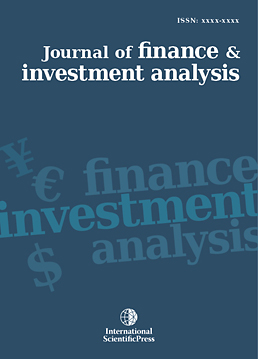Journal of Finance and Investment Analysis
The Role of Capital Market Operations in Capital Formation
-
 [ Download ]
[ Download ]
- Times downloaded: 14558
-
Abstract
In this study, we examined the issue of the magnitude and direction of relationship between capital market performance indicators and gross fixed capital formation in Nigeria from 1980 to 2011. This examination was predicated on the need to know which of the variables predict the other and the level of influence. It is aimed at educating the public on the importance of the various reforms and emphasis placed on the operations of the capital market, especially the stock market, on the economy in a third world country like Nigeria. The Augmented Dickey-Fuller test results indicated that the data used achieved stationarity after a first differencing at the order 1(1). The analysis revealed the existence of positive and significant long run relationship between capital market activities and gross fixed capital formation in Nigeria. The Granger Causality Test results reveal that there is a unidirectional causality flowing from Gross Fixed Capital Formation (GFCF) to market capitalization. This suggests that growth in GFCF could raise the value of listed securities, boost the value of the firms, increase the prices of listed equities and enlarge the size of the country’s capital market. The lack of causality flowing from capital market activities to Gross Fixed Capital Formation may be attributed to the low level of capital market development. This paper recommends that the managers of the Nigeria economy should evolve policies and action programmes that would develop and grow the capital market by encouraging both the private individual and institutional investors to take greater initiatives in participating in the capital market, increase productive activities and promote a more private sector driven economy.
